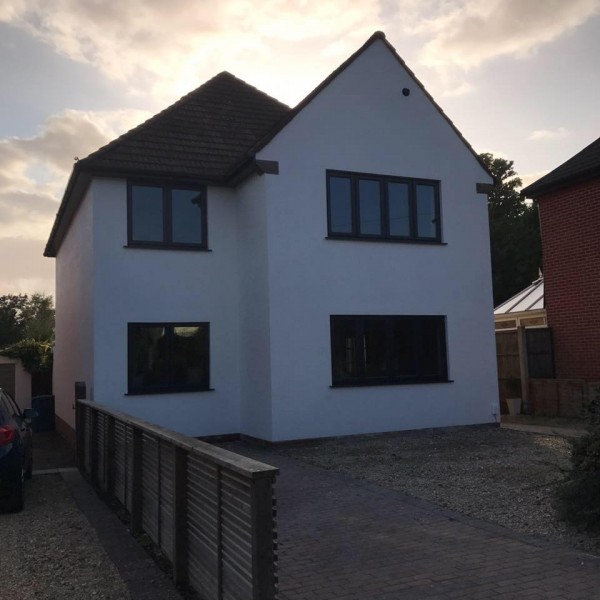Loft Conversions in Christchurch
Filter your search
Post your job FREE and let trades come to you
Save time by filling out our simple job post form today and your job will be sent to trades in your area so you can sit back, relax and wait for available trades to contact you.
Post your job FREESearch Loft Conversions in places nearby
Introduction to Loft Conversions in Christchurch
Loft conversions in Christchurch have become a popular choice for homeowners looking to maximise their living space without the hassle of moving. With the charming architecture and scenic views that Christchurch offers, converting a loft can add both value and comfort to your home. This article will guide you through the ins and outs of loft conversions, ensuring you have all the information needed to make an informed decision.
Understanding the Benefits of Loft Conversions
Loft conversions offer a myriad of benefits. Firstly, they provide additional living space, which can be used for various purposes such as a bedroom, office, or playroom. Secondly, they can significantly increase the value of your property, making it a wise investment. Moreover, loft conversions can enhance the aesthetic appeal of your home, offering a unique and personalised touch.
Increased Property Value
One of the most compelling reasons to consider a loft conversion is the potential increase in property value. Homes with additional living spaces are often more attractive to buyers, and a well-executed loft conversion can add up to 20% to your home's value. This makes it a financially sound decision for many homeowners in Christchurch.
Enhanced Living Space
Loft conversions provide an opportunity to create a space tailored to your needs. Whether you need an extra bedroom, a home office, or a creative studio, the possibilities are endless. This additional space can improve your quality of life by reducing clutter and providing a dedicated area for specific activities.
Cost-Effective Solution
Compared to the costs and stress associated with moving house, a loft conversion is a cost-effective solution. It allows you to stay in your beloved neighbourhood while enjoying the benefits of a larger home. Additionally, it saves you from the expenses of stamp duty, legal fees, and moving costs.
Types of Loft Conversions
There are several types of loft conversions to consider, each with its own set of advantages. The choice largely depends on your budget, the structure of your home, and your personal preferences.
Velux Loft Conversion
Velux loft conversions are the simplest and most cost-effective option. They involve installing Velux windows into the existing roofline, allowing natural light to flood the space. This type of conversion is ideal for homes with ample headroom and is often the quickest to complete.
Dormer Loft Conversion
Dormer conversions are popular due to their versatility and ability to add significant space. They involve extending the existing roof to create additional headroom and floor space. Dormers can be designed to blend seamlessly with the existing architecture, maintaining the aesthetic appeal of your home.
Mansard Loft Conversion
Mansard conversions are typically more complex and involve altering the entire roof structure. They provide the maximum amount of space and are often used in terraced houses. While they are more expensive, the additional space and potential for customisation make them a worthwhile investment.
Hip-to-Gable Loft Conversion
This type of conversion is suitable for homes with a hipped roof. It involves extending the sloping side of the roof to create a vertical wall, thereby increasing the usable space. Hip-to-gable conversions are popular in semi-detached and detached houses.
Planning Permission and Building Regulations
Before embarking on a loft conversion, it's crucial to understand the planning permission and building regulations involved. While some conversions fall under permitted development rights, others may require formal approval.
Permitted Development Rights
In many cases, loft conversions can be carried out under permitted development rights, meaning you won't need to apply for planning permission. However, there are specific criteria that must be met, such as the volume of the conversion and the impact on the existing structure.
When Planning Permission is Required
If your conversion involves significant changes to the roof structure or exceeds the limits of permitted development, you will need to apply for planning permission. It's advisable to consult with your local planning authority in Christchurch to ensure compliance with all regulations.
Building Regulations Compliance
Regardless of whether planning permission is required, all loft conversions must comply with building regulations. These regulations ensure the safety and structural integrity of the conversion, covering aspects such as fire safety, insulation, and access.
Choosing the Right Contractor
Selecting the right contractor is crucial to the success of your loft conversion. A reputable contractor will guide you through the process, ensuring the project is completed on time and within budget.
Research and Recommendations
Start by researching local contractors in Christchurch and seeking recommendations from friends and family. Look for contractors with a proven track record of successful loft conversions and positive customer reviews.
Obtaining Quotes and Comparing Prices
Once you've shortlisted potential contractors, obtain detailed quotes from each. Compare prices, but also consider the quality of materials and the scope of work included in the quote. Remember, the cheapest option isn't always the best.
Checking Credentials and Experience
Ensure the contractor is fully licensed and insured. Check their credentials and experience in loft conversions specifically. A contractor with extensive experience will be better equipped to handle any challenges that arise during the project.
Designing Your Loft Conversion
The design phase is an exciting part of the loft conversion process. It allows you to personalise the space to suit your needs and preferences.
Space Planning and Layout
Consider how you intend to use the space and plan the layout accordingly. Think about the placement of windows, doors, and furniture to maximise functionality and comfort.
Choosing Materials and Finishes
Select materials and finishes that complement the existing style of your home. Consider factors such as durability, maintenance, and cost when making your choices.
Incorporating Natural Light
Maximise natural light by strategically placing windows and skylights. This not only enhances the aesthetic appeal of the space but also reduces the need for artificial lighting.
Cost Considerations for Loft Conversions
Understanding the costs involved in a loft conversion is essential for budgeting and planning. Costs can vary significantly depending on the type of conversion, materials used, and the complexity of the project.
Factors Affecting Cost
Several factors can influence the cost of a loft conversion, including the size of the space, the type of conversion, and the quality of materials. Additional costs may arise from planning permission, building regulations, and unforeseen structural issues.
Budgeting for Your Conversion
Create a detailed budget that accounts for all potential expenses. Include a contingency fund to cover unexpected costs that may arise during the project.
Financing Options
If you need financial assistance, explore financing options such as home improvement loans or remortgaging. Consult with a financial advisor to determine the best option for your situation.
Common Challenges and How to Overcome Them
While loft conversions offer numerous benefits, they can also present challenges. Being aware of these challenges and knowing how to address them can help ensure a smooth conversion process.
Structural Limitations
Older homes may have structural limitations that complicate the conversion process. A thorough structural assessment by a professional can identify potential issues and provide solutions.
Access and Staircase Design
Creating access to the loft can be challenging, especially in homes with limited space. Consider innovative staircase designs that maximise space without compromising safety or aesthetics.
Dealing with Planning and Regulatory Hurdles
Navigating planning permissions and building regulations can be daunting. Working with an experienced contractor who understands local regulations can simplify the process and ensure compliance.
Frequently Asked Questions
- Do I need planning permission for a loft conversion in Christchurch? In many cases, loft conversions fall under permitted development rights, but it's best to check with your local planning authority.
- How long does a loft conversion take? The duration varies depending on the complexity of the project, but most conversions take between 6 to 12 weeks.
- Can all lofts be converted? Not all lofts are suitable for conversion. A structural assessment can determine if your loft is viable for conversion.
- What is the cost of a loft conversion? Costs vary widely, but on average, a loft conversion can range from £20,000 to £50,000.
- Will a loft conversion add value to my home? Yes, a well-executed loft conversion can increase your home's value by up to 20%.
- Can I live in my home during the conversion? In most cases, you can remain in your home during the conversion, though there may be some disruption.
Final Thoughts on Loft Conversions in Christchurch
Loft conversions in Christchurch offer a fantastic opportunity to enhance your living space and increase your property's value. By understanding the benefits, types, and processes involved, you can make informed decisions that align with your needs and budget. With careful planning and the right contractor, your loft conversion can transform your home into a more functional and beautiful space.
















